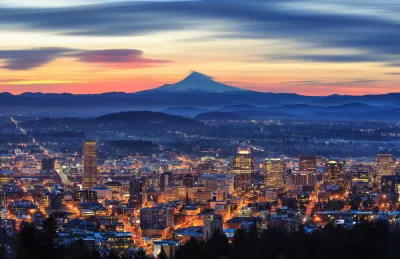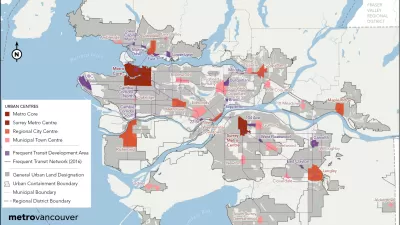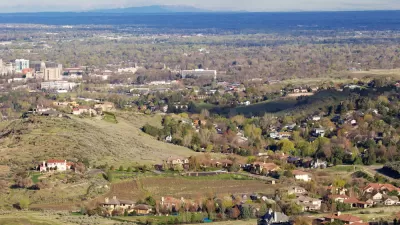The planning world celebrated Jane Jacobs's 100th birthday earlier this month, and has already begun commemorating the centennial of New York's first zoning code. But did you know regional planning rose to prominence 50 years ago?

Mariia Zimmerman reflects on 50 years regional planning. The anniversary isn't as hard and fast as some other anniversaries, but Zimmerman ties the rise to prominence of regional planning back to 1962, with the Federal-Aid Highway Act, 1967, with the creation of the Metropolitan Council and Metropolitan Transit Commission in the Twin Cities region, and 1966, with the creation of the Columbia Region Association of Governments (CRAG).
Zimmerman begins the article by noting the "continued need for regions to work together to address an increasingly complex set of problems," which is happening in some places, while "parochialism continues to impede progress" in other places. Zimmerman lists examples from both side of the regional planning spectrum, while maintaining rhetoric speaking to the potential of regional planning.
FULL STORY: CELEBRATING REGIONAL PLANNING’S GOLDEN ANNIVERSARY

Manufactured Crisis: Losing the Nation’s Largest Source of Unsubsidized Affordable Housing
Manufactured housing communities have long been an affordable housing option for millions of people living in the U.S., but that affordability is disappearing rapidly. How did we get here?

Americans May Be Stuck — But Why?
Americans are moving a lot less than they once did, and that is a problem. While Yoni Applebaum, in his highly-publicized article Stuck, gets the reasons badly wrong, it's still important to ask: why are we moving so much less than before?

Using Old Oil and Gas Wells for Green Energy Storage
Penn State researchers have found that repurposing abandoned oil and gas wells for geothermal-assisted compressed-air energy storage can boost efficiency, reduce environmental risks, and support clean energy and job transitions.

Updating LA’s Tree Rules Could Bring More Shade to Underserved Neighborhoods
A new USC study finds that relaxing Los Angeles’ outdated tree planting guidelines could significantly expand urban tree canopy and reduce shade disparities in lower-income neighborhoods, though infrastructure investments are also needed.

California's Canal Solar Projects Aim to Conserve Resources and Expand Clean Energy
California’s Project Nexus has begun generating electricity from solar panels installed over irrigation canals, with researchers and state agencies exploring statewide expansion to conserve water and boost clean energy production.

HHS Staff Cuts Gut Energy Assistance Program
The full staff of a federal program that distributes heating and cooling assistance for low-income families was laid off, jeopardizing the program’s operations.
Urban Design for Planners 1: Software Tools
This six-course series explores essential urban design concepts using open source software and equips planners with the tools they need to participate fully in the urban design process.
Planning for Universal Design
Learn the tools for implementing Universal Design in planning regulations.
Heyer Gruel & Associates PA
City of Moreno Valley
Institute for Housing and Urban Development Studies (IHS)
City of Grandview
Harvard GSD Executive Education
Salt Lake City
NYU Wagner Graduate School of Public Service
City of Cambridge, Maryland





























